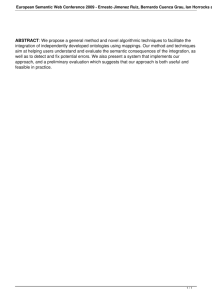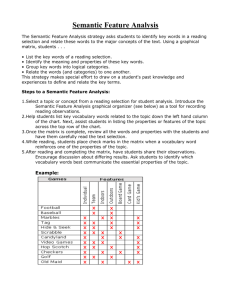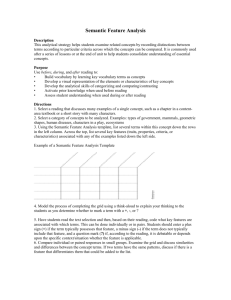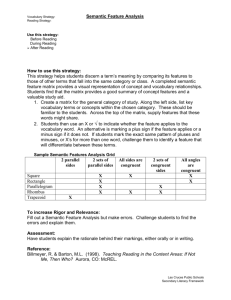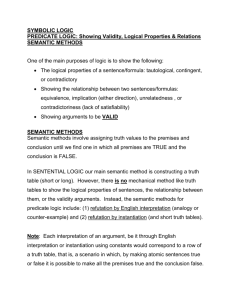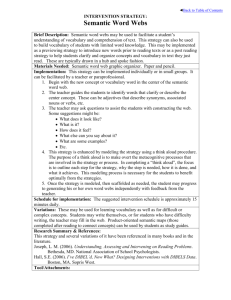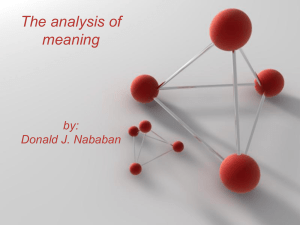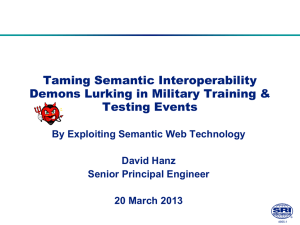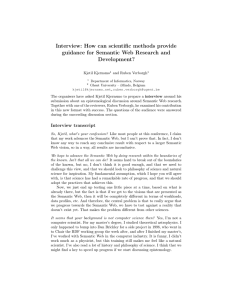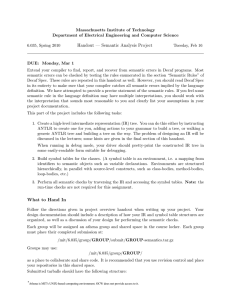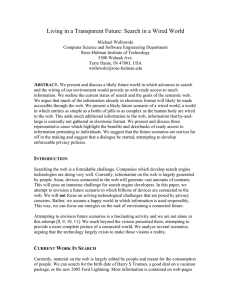Architecting Ambient Knowledge in Enterprises IT Enabled Enterprise Integration & Transformation Problem Hypothesis
advertisement
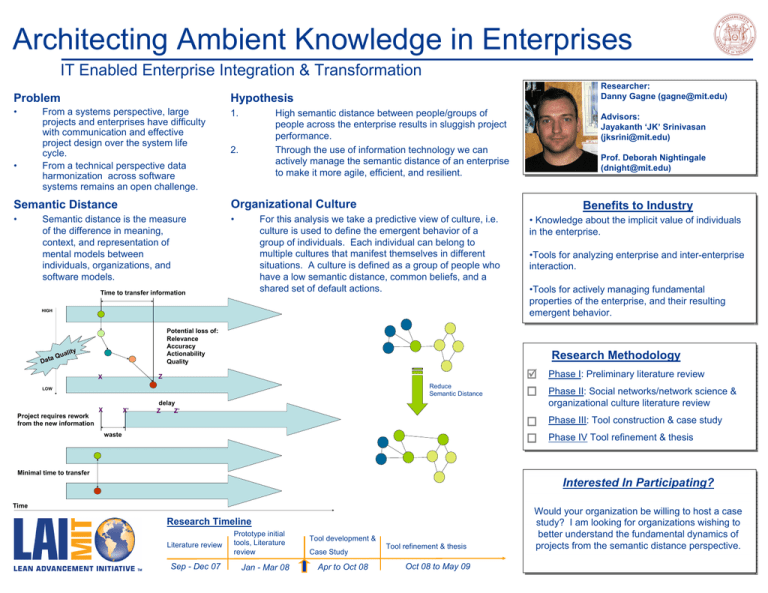
Architecting Ambient Knowledge in Enterprises IT Enabled Enterprise Integration & Transformation Problem Hypothesis • 1. From a systems perspective, large projects and enterprises have difficulty with communication and effective project design over the system life cycle. From a technical perspective data harmonization across software systems remains an open challenge. • Researcher: Danny Gagne (gagne@mit.edu) High semantic distance between people/groups of people across the enterprise results in sluggish project performance. Through the use of information technology we can actively manage the semantic distance of an enterprise to make it more agile, efficient, and resilient. 2. Semantic Distance Organizational Culture • • Semantic distance is the measure of the difference in meaning, context, and representation of mental models between individuals, organizations, and software models. HIGH Potential loss of: Relevance Accuracy Actionability Quality ty uali aQ Dat X X’ •Tools for analyzing enterprise and inter-enterprise interaction. •Tools for actively managing fundamental properties of the enterprise, and their resulting emergent behavior. Phase I: Preliminary literature review Reduce Semantic Distance LOW Project requires rework from the new information • Knowledge about the implicit value of individuals in the enterprise. Research Methodology Z X Prof. Deborah Nightingale (dnight@mit.edu) Benefits to Industry For this analysis we take a predictive view of culture, i.e. culture is used to define the emergent behavior of a group of individuals. Each individual can belong to multiple cultures that manifest themselves in different situations. A culture is defined as a group of people who have a low semantic distance, common beliefs, and a shared set of default actions. Time to transfer information Advisors: Jayakanth ‘JK’ Srinivasan (jksrini@mit.edu) delay Z’ Z Phase II: Social networks/network science & organizational culture literature review Phase III: Tool construction & case study waste Phase IV Tool refinement & thesis Minimal time to transfer Interested In Participating? Time Research Timeline Literature review Sep - Dec 07 Prototype initial tools, Literature review Jan - Mar 08 Tool development & Case Study Apr to Oct 08 Tool refinement & thesis Oct 08 to May 09 Would your organization be willing to host a case study? I am looking for organizations wishing to better understand the fundamental dynamics of projects from the semantic distance perspective.

